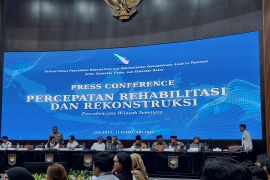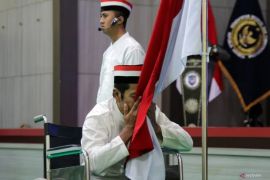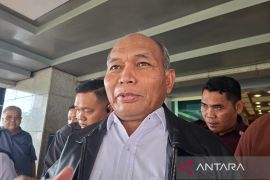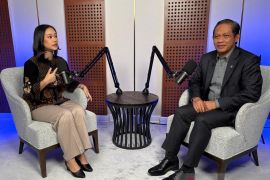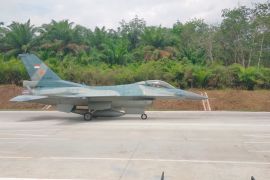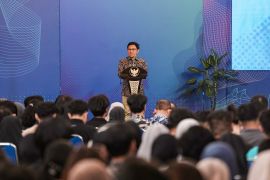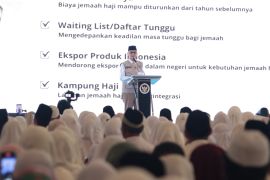"The funds were given in the form of grants and loans, which were disbursed to several sectors, such as education, investment and trade, climate change and the environment as well as disaster preparation," deputy chief of the EU Delegation to Indonesia Colin Crooks said.
Education is the sector that received a great deal of attention from the European Union, with a total grant of 53 million euros or about Rp848 billion.
Whereas, the assistance for environmental issues and climate change programs was 83 million euros, in which half of the funds were in the form of loans.
Crooks said the Indonesian government had used the aid effectively to reduce poverty, which was further supported by the strong economic growth and the democratization process improvement.
The European Union report in the "EU Blue Book 2014" assessed that Indonesias position in the international arena had changed, so the relationship between the two parties should also be adjusted.
"Indonesia is a donor and friendly country that is important to us. We want the relationship between the two parties to address the global problems of the 21st century. The changing form of the relationship should also be represented in the way we work together in achieving the development goals," Crooks said.
"The European Union has 28 member states with a tradition of promoting development. Overall, we are still the largest donor in the world with a total aid of 55 billion euros in 2012," Crooks added.(*)
Editor: Heru Purwanto
Copyright © ANTARA 2014
